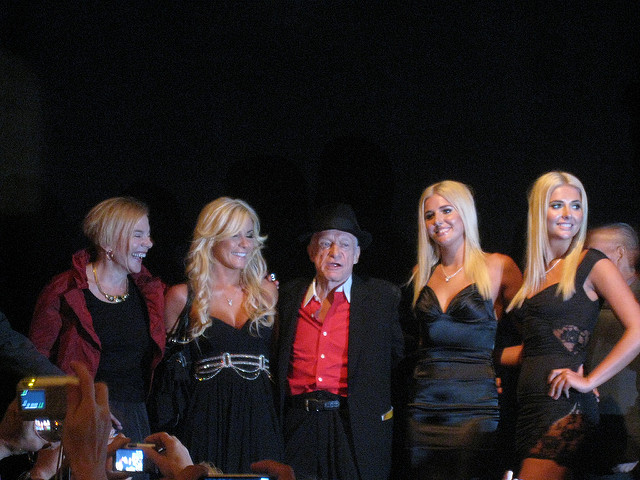
Sex and God: Hugh Hefner’s Lifetime Fight Against Religion
- By Derek Welch --
- 29 Sep 2017 --

Playboy Founder had Complicated Relationship with Religion
Sex sells. And if there is one man who personified the commodification of sex it would be Hugh Hefner. The man who created Playboy Magazine was never shy about controversy. But one of his biggest opponents throughout his career had been Christian organizations.
Sex and God: Hugh Hefner’s Lifetime Fight Against Religion[/tweetthis]
That might be the reason why hours after his death one of Russia’s leading clerics declared “Hefner went straight to hell.”
Mr. Hefner was a highly public symbol for the erosion of Christian morality. Born to a conservative Methodist family, his mother believed he was going to be a missionary. He declared himself an agnostic. He clearly stated his belief that “religion is a myth.” He supported several measures that upset Christians: gay marriage, abortion, birth control, sex before marriage, and adultery. His opponents would quote Scripture in their depictions of him “All things have I seen in the days of my vanity: there is a just man that perisheth in his righteousness, and there is a wicked man that prolongeth his life in his wickedness.”
But Mr. Hefner had a complicated relationship with religion. He described his spiritual journey as someone who was trying to make sense of a belief system that seemed both “hypocritical and hurtful.” He spent time with various clergyman. One of his oldest friends was Episcopal priest Malcolm Boyd. He even offered a special discount subscription rate for ministers. When asked about his faith, he depicted his life influenced by Love “the Golden Rule.”
"The major civilizing force in the world is not religion, it is sex" Hugh Hefner pic.twitter.com/4uPonnpuMA
— Model Posts (@PostsModel) September 28, 2017
His point about love was that it is complicated and irrational. That love finds expression in unique ways that cannot be ruled by strict adherence to a moral code, regardless of the source. He characterized his business as a way to bring the ideas of the Sexual Revolution into mainstream conversation. Expressions of love, even if vulgar or deemed inappropriate, were necessary to make individuals feel comfortable discussing them.
The Marketplace of Ideas is a philosophical concept that it is better to have open forums with transparency and discussion to avoid extremism or feelings of isolation. While it can be contested whether he lived his life following the Golden Rule he professed, it can be argued that the he had some effect in changing what is permissible to in U.S. mainstream culture.


















